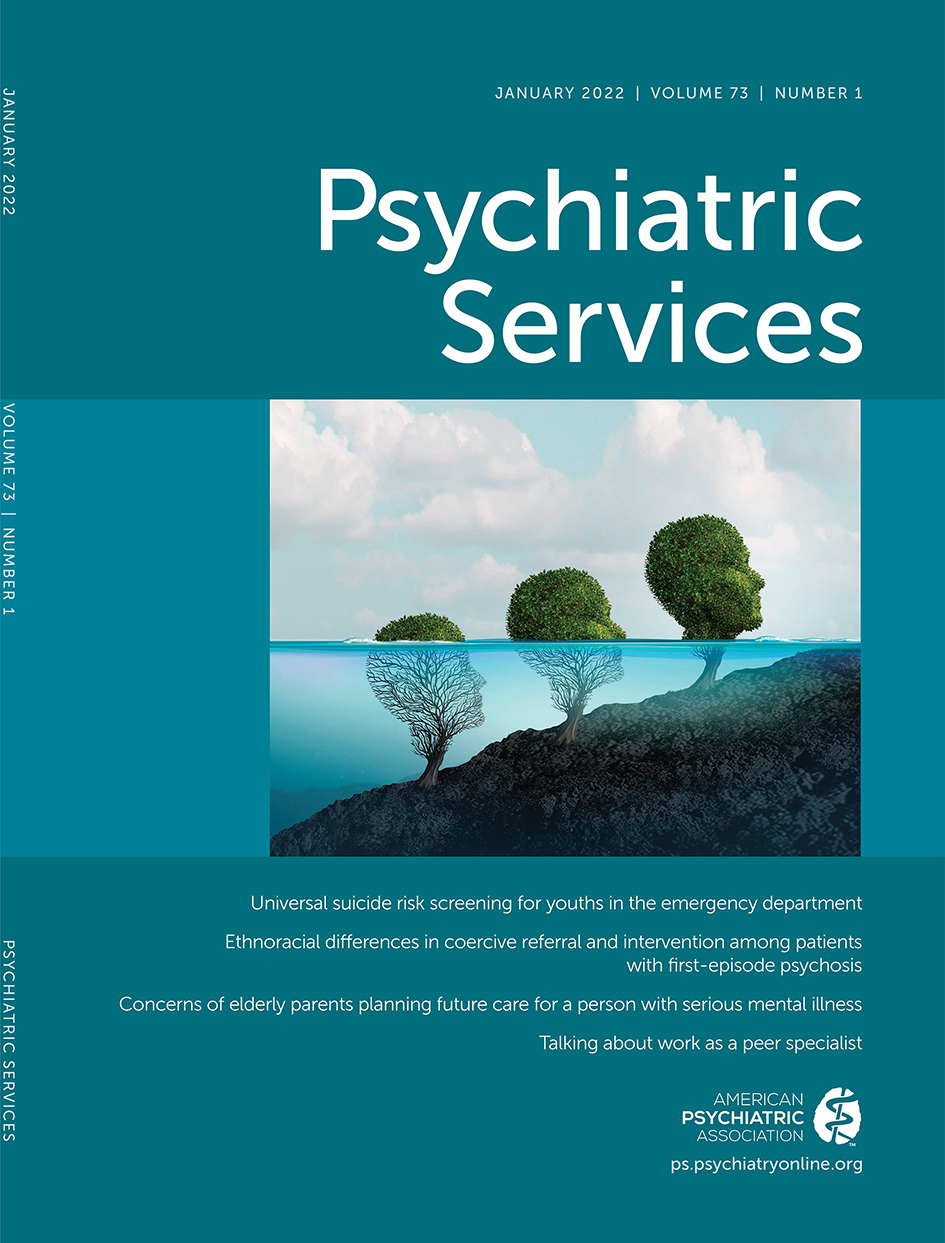Perinatal Psychiatry: Improving Access to Perinatal Mental Health Care
This Editor’s Choice collection was published online in November 2021 and refreshes the original April 2019 collection on perinatal psychiatry. To review all collections, please visit the Editor’s Choice section of ps.psychiatryonline.org.
Over the past 20 years, maternal mortality in the United States has more than doubled, topping the mortality list for high-income countries. This increased rate is alarming: according to the Centers for Disease Control and Prevention, more than 700 women die each year due to complications related to pregnancy and childbirth, and more than 50,000 women suffer from a life-threatening complication. Behavioral health conditions make up a significant proportion of perinatal morbidity and increase the risk of perinatal mortality through self-harm, unintentional overdose, inadequate management of physical health, and suicide. At least half of maternal deaths in the United States are preventable; to help prevent ongoing death and suffering, stakeholders must address racial and ethnic disparities in perinatal care and reduce barriers to early health care access. Increasing access to perinatal mental health treatment will promote maternal health through improved health-related behaviors, mitigation of high-risk behaviors, and better prenatal and postnatal engagement in care.
This Editor’s Choice collection builds on the April 2019 perinatal psychiatry collection and highlights innovative service models across the care continuum, from screening to longitudinal treatment. The first set of articles details the large treatment gap for perinatal mental illness despite its association with pregnancy complications. The second set of articles discusses digital health tools (e.g., mobile apps and telepsychiatry) to support perinatal mental health screening and integrated care. The last group of articles discusses the benefits of perinatal collaborative care models in controlled trials and real-world settings in socioeconomically, racially, ethnically, and geographically diverse populations. It is incumbent upon mental health clinicians to build upon the innovations in this collection to expand access to perinatal mental health care with the goal of reversing the concerning rise in maternal morbidity and mortality.
THE TREATMENT GAP
Relationship Between Pregnancy Complications and Psychiatric Disorders: A Population-Based Study With a Matched Control Group
Kang-Yi CD, Kornfield SL, Epperson CN, et al.
Psychiatr Serv 2018; 69:300–307
DOI: 10.1176/appi.ps.201700097
Mental Health Treatment and Unmet Mental Health Care Need Among Pregnant Women With Major Depressive Episode in the United States
Sanmartin MX, Ali MM, Chen J, et al.
Psychiatr Serv 2019; 70:503–506
DOI: 10.1176/appi.ps.201800433
State Mandates Regarding Postpartum Depressiona
Rowan PJ, Duckett SA, Wang JE
Psychiatr Serv 2015; 66:324–328
DOI: 10.1176/appi.ps.201300505
USE OF TECHNOLOGY IN PERINATAL MENTAL HEALTH CARE
Evaluation of Telepsychiatry-Enabled Perinatal Integrated Care
Shore JH, Waugh M, Calderone J, et al.
Psychiatr Serv 2020; 71:427–432
DOI: 10.1176/appi.ps.201900143
Perinatal Mental Health in Community Psychiatry: A Reproductive Psychiatry eConsult Pilot Project
Dossett EC, Benitez C, Garcia N
Psychiatr Serv 2019; 70:1075–1076
DOI: 10.1176/appi.ps.201900316
Use of Text Messaging for Postpartum Depression Screening and Information Provisiona
Lawson A, Dalfen A, Murphy KE, et al.
Psychiatr Serv 2019; 70:389–395
DOI: 10.1176/appi.ps.201800269
A Mobile Application for Monitoring and Management of Depressed Mood in a Vulnerable Pregnant Populationa
Hantsoo L, Criniti S, Khan A, et al.
Psychiatr Serv 2018; 690:104–107
DOI: 10.1176/appi.ps.201600582
INNOVATION IN COLLABORATIVE CARE AND PERINATAL MENTAL HEALTH
Collaborative Care for Perinatal Depression Among Socioeconomically Disadvantaged Women: Adverse Neonatal Birth Events and Treatment Response
Bhat A, Grote NK, Russo J, et al.
Psychiatr Serv 2017; 68:17–24
DOI: 10.1176/appi.ps.201600002
Incremental Benefit-Cost of MOMCare: Collaborative Care for Perinatal Depression Among Economically Disadvantaged Women
Grote NK, Simon GE, Russo J, et al.
Psychiatr Serv 2017; 68:1164–1171
DOI: 10.1176/appi.ps.201600411
Increased Depression Screening and Treatment Recommendations After Implementation of a Perinatal Collaborative Care Program
Miller ES, Grobman WA, Ciolino JD, et al.
Psychiatr Serv 2021; 72:1268–1275
DOI: 10.1176/appi.ps.202000563
PRogram In Support of Moms (PRISM): Development and Beta Testinga
Byatt N, Pbert L, Hosein S, et al.
Psychiatr Serv 2016; 67:824–826
DOI: 10.1176/appi.ps.201600049
Longitudinal Remote Coaching for Implementation of Perinatal Collaborative Care: A Mixed-Methods Analysis
Bhat A, Bennett IM, Bauer AM, et al.
Psychiatr Serv 2020; 71:518–521
DOI: 10.1176/appi.ps.201900341
Pregnant and Postpartum Women With Bipolar Disorder: Taking the Care to Where They Are
Bhat A, Cerimele JM, Byatt N
Psychiatr Serv 2018; 69:1207–1209



